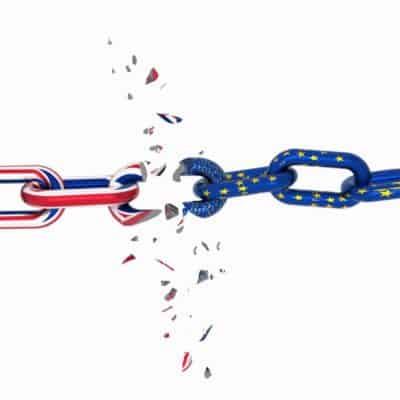by Michael Armstrong
Has the world gone mad? People fill the streets in capitols and important cities across the globe, marching, chanting, and holding up signs for this and against that. The streets are paralyzed, businesses closed. Law enforcement calls up the reserves to protect private property, or the protesters from themselves or counter-protesters, and the apparently legal right of individuals to hold society hostage provided the group is large enough and they notify the police in advance.
Typically it is a sadly muddled affair, rarely running its course in peace and civility. The anonymity of a large crowd provides opportunity for more nefarious pursuits like looting, burning, and flipping over cars. Even a noble cause can provide cover for those who only desire to throw rocks and steal.
Turning the streets to a sea of humanity and paralyzing industry is not a new tactic. A mass of people represents power. The more people, the more power, and the more likely the demands of said masses will be met. Whether the underlying motivation is just and righteous or evil and selfish is beside the point when considering the effectiveness of mass demonstrations. The same tactic has been used for both noble and disreputable ends. What is surprising is how frequently it is being employed and to what divergent ends.
Both ancient and recent history provide us with a number of interesting examples. Possibly the most ancient is preserved for us in the pages of the Bible and is commonly called “the rebellion of Korah.” The account is in Numbers chapter 16: “Now Korah, the son of Izhar, the son of Kohath, the son of Levi, and Dathan and Abiram, the sons of Eliab, and On, the son of Peleth, sons of Reuben, took men: And they rose up before Moses, with certain of the children of Israel, two hundred and fifty princes of the assembly, famous in the congregation, men of renown: And they gathered themselves together against Moses and against Aaron, and said unto them, Ye take too much upon you, seeing all the congregation are holy, every one of them, and the Lord is among them: wherefore then lift ye up yourselves above the congregation of the Lord?”
If civil government had been at stake they may very well have carried the day. It is written that Israel was organized into “captains over thousands, and captains over hundreds,” etc. How many people did the “two hundred and fifty princes of the assembly” represent? Not that all the people shared in their guilt, but it adds to the enormity of what Moses and Aaron were confronted with.
Korah, Dathan, Abiram and their cohorts chose a poor time in history to act on their vain and self-important notions; one of the few times in which the Lord was actively intervening to accomplish an integral part of His plan. Consequently, “the earth opened her mouth, and swallowed them up, and their houses, and all the men that appertained unto Korah, and all their goods. They, and all that appertained to them, went down alive into the pit, and the earth closed upon them: and they perished from among the congregation. And all Israel that were round about them fled at the cry of them: for they said, Lest the earth swallow us up also. And there came out a fire from the Lord, and consumed the two hundred and fifty men that offered incense.” Not the outcome they were hoping for, but spectacular nonetheless. Safety in numbers does not apply when attempting to subvert the will of God.
A notable series of ancient protests occurred around 500 B.C. in the early history of the Roman Republic known as the Secession of the Plebians. Debt was at the heart of the first secession. Most of the population and military were Plebians, or commoners, but wealth and government were concentrated in the hands of the aristocratic Patricians. (Apparently history does repeat itself.) Taxation forced many Plebians to take out loans at exorbitant rates of interest, though they were not represented in the Senate. Debtors were frequently deprived of their property, beaten, and imprisoned when they could not pay. All of that and more had happened to a well known, elderly army officer who told his tale and displayed his scars, both from battle and the whips of his creditors.
In the outrage that ensued, many other debtors took to the streets, begging for relief. The issue dragged on for over a year with concessions both granted and retracted and sporadic interruptions by war. The levies, much like a military draft, were used by the Senate to get many of the men out of Rome, intentionally delaying and distracting from the issue. Finally, the Plebians withdrew to Mons Sacer (the sacred mountain) en masse. Since they were the majority of the population it effectively shut the city down.
The Senate became afraid and sent one of their most respected and eloquent members to make an attempt at reconciliation. He prevailed with an analogy of the Republic as a body where all the parts must necessarily work together to be prosperous and safe. Much debt was also forgiven and the office of Tribune was created to represent Plebian interests.
Taxation without representation is a sympathetic grievance and one of the roots of our own American Republic. Many an angry crowd gathered in the lead up to the revolution. Who can forget such iconic moments as the Boston Massacre or Tea Party? Massachusetts was actually the only colony where the Governor was bold enough to try to land the tea, probably because two of his sons were involved in its distribution. The other colonies mounted such resistance that most of the ships returned to England with the tea and without the tax.
Perhaps Britain should have reflected upon its own civil war, little more than 100 years past. London effectively refused King Charles I entrance to the city and his assertion of the divine right of Kings eventually cost him his head. The intervening Commonwealth and the Protectorate of the infamous Cromwell did not last however, as little more than a decade passed before the restoration of Charles II. These events were extremely shocking to contemporary European monarchs but do not hold a candle to the bloody, mob-driven slaughter of the then future French Revolution.
With industrialization came the organization of labor and the more frequent application of pressure through mass demonstration and strike. In Britain the general strike of 1842 spanned many different types of businesses. Cities and towns were forcibly shut down. The people’s charter, a series of petitions from these years, received millions of signatures. Chief among their six demands were universal male suffrage and secret ballots. Historians estimate that over 150,000 people gathered in Kennington Common on April 10, 1848, marching on parliament to present the third of these petitions. An additional 100,000 constables had been recruited in case of trouble but the procession proved peaceful.
The Communist Manifesto was also first published in 1848, a year which saw an explosion of unrest and revolution across Europe. France had a second revolution, again trading monarchy for the second republic. (Which was later seized by a second dictator and turned into a second empire.) Germany, Italy, and Sweden were shaken, just to name a few. More than 50 countries were affected.
The 20th century had no shortage of notable and influential protests. Gandhi’s activities in South Africa and India. The Civil Rights movement in the United States. The fall of the Berlin Wall and the collapse of the Soviet Union. The people who risked life and limb to participate in these sympathetic causes tend to have our respect and admiration. The western world grieved for those massacred in Tiananmen Square just as it empathizes with the people of Hong Kong today. We cheer the current resistance to the brutally repressive Iranian regime in equal measure to our incredulity at their welcoming the Ayatollah to take over in the first place. Recent years have given us such miseries as Occupy Wall Street and the Arab Spring.
Whether a meek display of solidarity or a violent mob takeover, protest has power. It is currently being employed all over the world. Iran and Hong Kong have already been mentioned. Iraq is in turmoil and hundreds have died. Venezuela has been pushed to the brink time and time again. Lebanon is in physical and political gridlock. France has been dealing with the yellow vests for over a year. Bolivia has just ousted their president. These are instances where the demonstrations seek radical governmental overhaul. It would be impossible to document the myriad peripheral issues for which people have taken to the streets.
The world is seemingly on the brink and when change comes it may come quickly. Conflict rages between what is termed “progress” and traditional ideas. Incompatible modes of government compete for supremacy. The wealth of available, accessible information has resulted in an abundance of conflicting opinions. Nations are crippled with debt. Many of the ongoing protests mentioned are fueled by anger at attempted austerity measures, by cuts in subsidies and benefits. They want more, yet their demonstrations grind business to a halt and cripple industry. Political margins are razor thin––many major nations struggle to form cohesive governments. Are their leaders deaf to the demands of a mob? Is there anything to stop a self-interested politician from promising the world for a vote? The people indeed have a great deal of power, let us hope they use it wisely.










